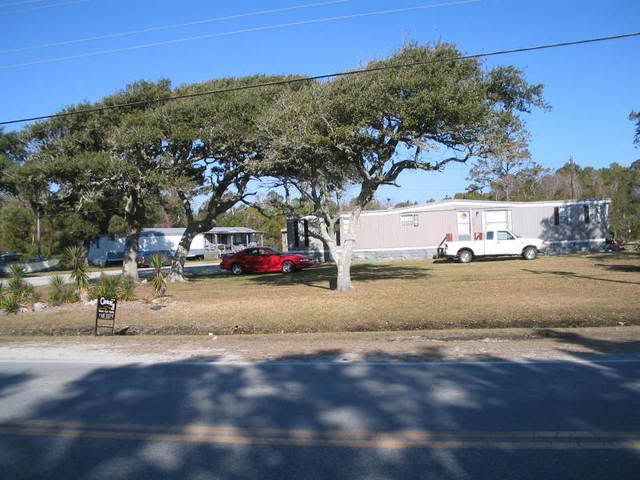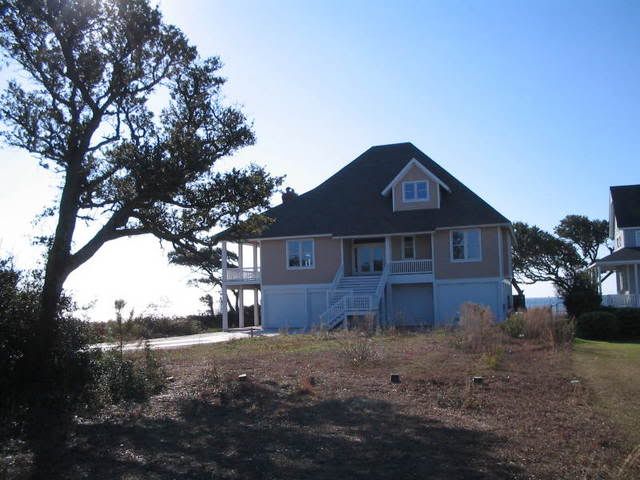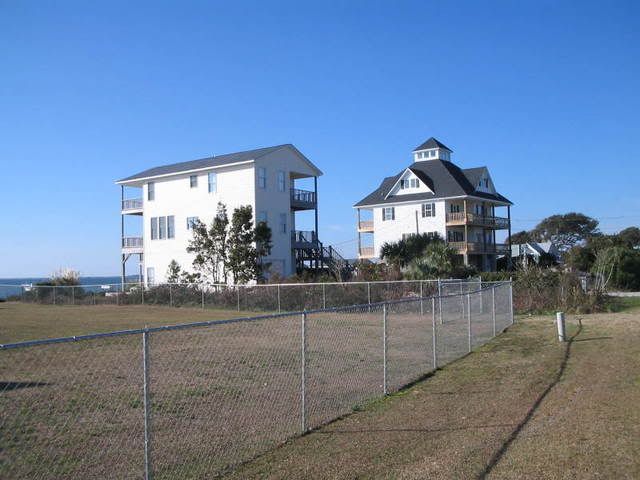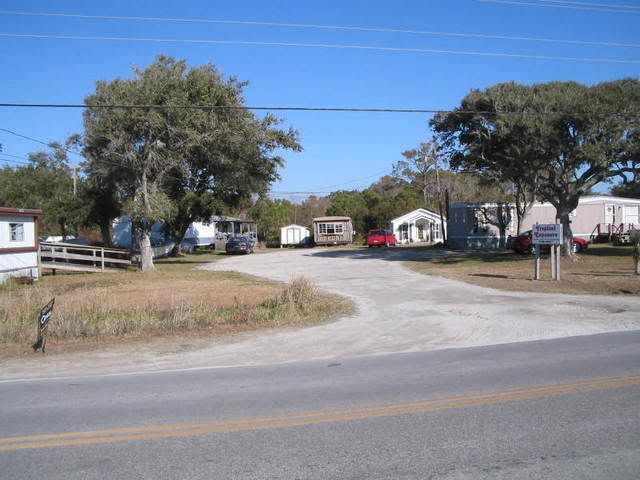
LoA, "The North-Side of the Road #1: 1 of 4" (Christmas 2006)
tragedy does not refer to just any old sad event, nor it is a term to be used to describe catastrophes without some further qualification. according to hegel at least, tragedy is a technical term that is used to describe the inevitable moment in which a conflict arises between two relative goods. perhaps his most famous example, and certainly one of the triumphs of hegelian literary interpretation, is the play Antigone, with its conflict between antigone and creon over the burial of their brother. the brother participates in an attack against their city and is killed. he lies dead in the field beyond the city walls. creon, the ruler of the city, declares that anyone who goes out to bury the dead will themselves be put to death. but antigone does sneak out and bury their brother. creon follows through and puts her to death by enclosing her in a cave.
this play is the height of tragedy for hegel and represents one of the most fundamental conflicts: the conflict between family and city. this the tension that arises between one's family or the ties of blood, especially symbolized by the female for hegel, and political, which is an expression of one's free rationality. but just because each is a relative good does not mean there is not an order to preference in hegel. the family is, in the tradition of roman law, the foundation of the state in hegel, but it only becomes a solid foundation for the state by being transcended, and seen in its relativity. in other words, the political is the consummation of familial ties. it translates natural family bonds into rationally formed free relations between persons -whether blood relations and not. without the family the state cannot be, but if the family is taken as an end in itself it will disrupt the functioning of human freedom in the political sphere by fragmenting the human community. it is a good that must be defended (antigone), and it is a danger that must be overcome in favor of what is higher (creon).

LoA, "The Sound-Side of the Road #1: 2 of 4" (Christmas 2006)
today antigone lives to the East'ard and in a manner that would be considered low drama to most people, tragedy is slowly unfolding again. how else can one explain the actions of the native residents of the island than through recourse to the very insightful hegelian category of tragedy. in novemeber of 2006 a ballot initiative was put before the full time residents of the East'ard: ought the island incorporate into a town with a local government or should it remain an unincorporated area. the idea of incorporation and the formation of a local government was roundly defeated.
the initiative came to the ballot in the wake of certain real estate developments that had taken place over the course of the last couple years. on the west end of the small island, just as one comes over the bridge that links the East'ard to the West'ard a fairly substantial housing project had been undertaken, and while a few locals bought homes there, the prices were such that the project was clearly aimed at wealthier outsiders who were looking for either retirement homes, or summer beach homes. the homes were beautiful but beyond the reach of most native residents. then, in the summer of last year, a small home, more towards the eastern end sold. it sat on a moderate sized piece of property and the home itself was hardly remarkable: brick, old construction, in need of some moderate repair. there was nothing remarkable about the home other than its view of the water. it was the type of home that residents of the island, with a small family, could eventually hope of having for themselves. until that day, when the home sold for approximately 1 million dollars. this radically changed the landscape of the East'ard, and as i travelled around the island over new years it became clear that the island was for sale. long time residents were cashing in.
and so the ballot initiative: would the people of the East'ard incorporate and take control of the now inevitable development their long time home, or would they refuse to incorporate and allow it develop in a manner completely beyond their control. while it may seem counter-intuitive, it is not surprising that they refused to incorporate, and indeed was rather easily predictable. government is not looked upon with any sympathy by locals, as they have fought long battles with the foreigners of government who try to regulate their fishing: what can they catch, when can they catch it, how can they catch. the government comes along and interrupts their livelihood and the long traditions of fishing that they have practiced for generations. why would they want to invite 'government' to come and set up shop right on their very island, to come along and tell them how to live their lives. they have always handled their lives just fine themselves through the long-standing ties of familial relations that bind all the residents together by nature.

LoA, "The Sound-Side of the Road #2: 3 of 4" (Christmas 2006)
by nature and not by freedom. they failed to make the decision to transform, to consummate these unchosen and given relationships, into some freely chosen and political, and so they have agreed to the death sentence that is inevitably going to follow on their way of life. their life is being purchased from around them and soon they will no longer be at home in their own home. nature will be disrupted by something other. one of two things is bound to occur. north carolina has a very liberal law governing city expansion. it is for the most part a good law as it has kept urban decay to a minimum in nc. according to the law, cities can, of their own volition, and without the consent of party being annexed, include outlying, unincorporated land within their city boundaries if they provide certain basic city services to that area. so either, the Town, which lies a short distance across the water, will see the rising property values and decide to incorporate the East'ard in order to gain the revenues of those tax values and the natives will be unable to stay to due the sudden and dramatic addition of city property taxes, or the newcomers who are moving the East'ard, the so-called ditdotters and dingbatters, will, once they represent the controlling majority on the island, incorporate the East'ard to prevent its incorporation by the Town. meanwhile the natives can exert no control on the manner in which their island is developed or what is built there because there are no zoning regulations of any kind in what 'the government' views as essentially free territory. large homes are being built, on the water of course, immediately across the road from trailer parks. there is talk of condos being put in at one end of the island.

LoA, "The North-Side of the Road #2: 4 of 4" (Christmas 2006)
antigone is once again being shut in her cave, of her own choosing, to die. and no matter how she curses creon, her unshakeable belief in the ultimacy of the natural ties of family, against that autonomy which involves rational-freedom, political freedom, brings upon her her own condemnation.
-LoA
5 comments:
Ah...sad...sad...sad.
heartbreaking.
would you say that this is the cost of not conforming? that refusing to formulate family ties w/in the government structure is the cause of the decline?
Or, if we try to look at it differently? refusing to remain open to new ideas? avenues?
I don't know. It's difficult to make sense of this and yet, something that we need to learn from.
either way, heartbreaking...
salaams,
HiK
are you coming back, or what?
completely tragic and beautiful description of life here, generations so tied to the traditions of the past. there is a sense of need for evolution, but a distrust of the new. we live in the land of old salts, a world controled by the tides and marked by the consistancy of a light house. change to the new is a break of tradition and breaking tradition is like a slap in the face.
basically you made me cry. not just because it is sad, but because i know it is true.
s_amirra
i know. i remember walking around the island and just thinking how things were obviously changing and the only thing people knew to do was sell?? everything was for sale. which was basically an inability to imagine how to adapt to the changes, so instead just cash in and run.
and im not saying that there was anything wrong with people selling...but the sheer number of homes for sale was simply unreal and that is what i really saw as the failure to be able to go forward.
LoA.
Post a Comment